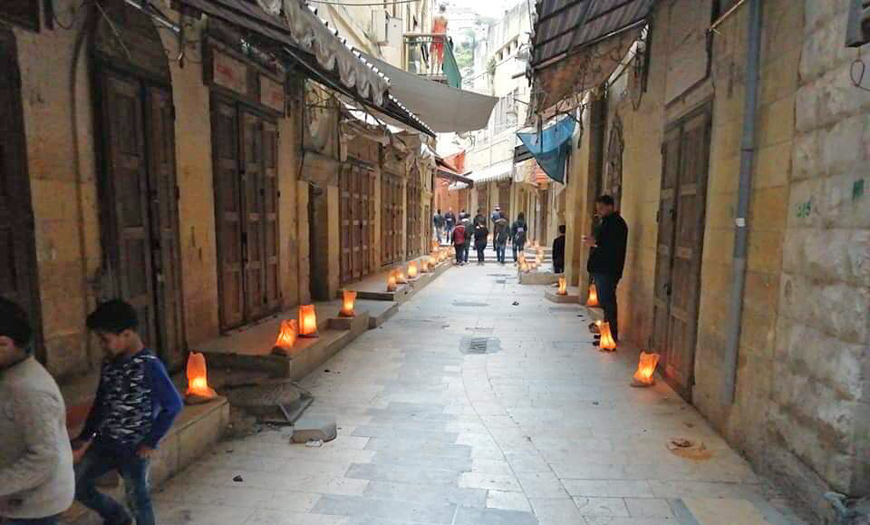AMMAN — Organisations and the Greater Salt Municipality on Friday held an event to write “Al Quds Arabiyeh” (Jerusalem is Arab) using 22,000 candles.
The candles were lit along Hamam Street in downtown Salt, setting a world record, according to the Jordan News Agency, Petra.
The initiative was organised by the Turath Al Salt channel, the Salt Development Cooperation and the Greater Salt Municipality. The record-breaking event was attended by a number of officials, ambassadors and prestigious members of the press from countries within the region, as well as from beyond.
The event featured speeches given by Salt’s mayor, Khaled Al Khashman, and Khaled Khraisat, owner of the Turath Al Salt channel. Khraisat said the channel aims to promote Salt’s rich heritage locally, regionally and internationally.
Attendees then carried on to the Al Quds Arabiyeh Street, which offers a view of the West Bank and various Palestinian cities, the most important of which is the occupied city of Jerusalem, Petra reported.
“The aim of the initiative was to promote Salt and attract visitors, in addition to reaffirming Jerusalem’s Arab identity by lighting thousands of candles along the street which overlooks the West Bank and Jerusalem,” Khraisat said.
“The lighting of 22,000 candles breaks a record which… came to fruition with the hard work of 250 young men and women,” he concluded.
